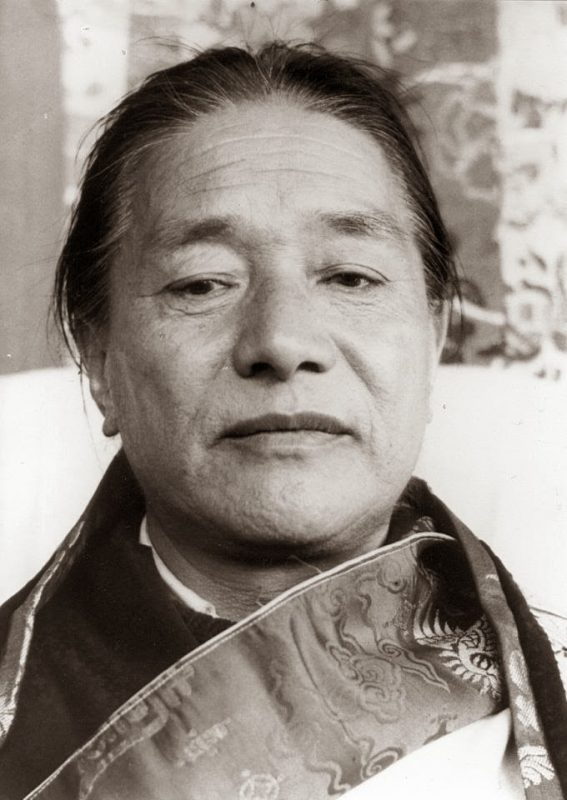How to Help When Death Is Near
Those who are dying and their families need compassionate support. Drawing from Pure Land Buddhism, Rev. Michael Tran explains how to provide that support. The post How to Help When Death Is Near appeared first on Lion’s Roar.

Bee and I were pretty close. She’d watched over me when I was young, and I eventually invited her to volunteer at the local temple. For over fifteen years, she served in the temple kitchen, where her curries and stews were popular at major events. She continued her work until she could no longer do so.
There was a time when we lost contact. I found out through friends that Bee had fallen ill and undergone major surgery. Eventually, she got in touch with my mom, and we were able to reconnect during a relic tour at a nearby temple. My mom retired, and I went into Buddhist chaplaincy. As Lunar New Year approached, my mom received a call from Bee’s son, Shawn. He shared that Bee was in the ICU and might not survive the new year.
Shawn asked if I could visit Bee, and I agreed. After gathering the necessary information, I changed into my chaplain attire and headed to the hospital. When I arrived, Bee was unresponsive in her bed. I approached her and spoke softly near her ear.
“Bee, it’s Michael,” I said. “I hope you can still hear me. Shawn’s here with me too. I know you’ve been sick for a while. It must be very tough for you. I want you to know that we’re all here for you. The Buddha, dharma, and sangha are with you. Your contributions to the temple have greatly benefited the community, inspiring others to join in spreading the dharma.
“We’re all connected, as the Buddha taught us. I want to remind you about reciting the name of Buddha Amitabha. One of his vows is that if we devote ourselves to reciting his name, we can be reborn in the Pure Land.
“At this moment, it’s up to you to decide your journey. The best thing you can do now is focus on Amitabha Buddha. He made forty-eight great vows for us to not only be reborn in his Pure Land but also to continue practicing and attaining enlightenment. You have nothing to worry about right now. Your children are all grown, and your oldest granddaughter has finished college and is working. Everyone’s united and will take care of your husband.”
I paused and chanted the name of Amitabha Buddha for about forty minutes before ending the visit.
A few days later, I returned to visit Bee on my own, bringing the Amitabha Sutra with me. As I approached her, I noticed tears forming in the corners of her eyes. In my heart, I knew she had heard everything the day before.
“Bee, it’s me,” I said. “I’m going to read the Amitabha Sutra now. This sutra was first taught by Shakyamuni Buddha without anyone asking for it—he gave it directly. That shows the importance of maintaining a connection with Amitabha Buddha.”
Then, I read the sutra slowly in her native language. After reading, I recited the name of Amitabha Buddha for at least fifteen minutes, reminding Bee to follow along in her heart. I repeated everything I had said in my previous visits. I dedicated the merit from these visits to Bee’s well-being, whether she was determined to recover or chose to be reborn in the Pure Land. I also dedicated merit to Bee’s karmic debt collectors, hoping that, rather than obstructing her transition, they’d benefit from the blessings of Amitabha Buddha and be liberated alongside her.
Later that same week, Shawn’s sister Pamela reached out, asking if I’d visit Bee with her. I agreed, and we met in the ICU. I noticed that Bee’s eyelids had flipped open. The nurse informed me that this was due to her muscles slowly shrinking, a normal part of the dying process.
I asked Pam how she was feeling, and she said she was coming to terms with Bee’s imminent death. As she looked up to respond, I could see the tears in her eyes. I asked her to speak to Bee first, and then I’d follow.
I encouraged Pam to reassure Bee that she no longer had to worry about anything, that they would take care of their father (Bee’s husband) and themselves. I wanted Bee to continue hearing familiar voices so she would feel calm, without fear or nervousness. I encouraged Pam to read a sutra to Bee.
I said our bodies are like houses—they age and, eventually, stop functioning. There may be unfinished business or things she’s holding on to, but at this moment, those attachments could obstruct her intention to follow Amitabha Buddha.
I emphasized that Bee’s focus should be solely on Amitabha Buddha. Anyone she sees, no matter how important they are to her, and anything she sees, no matter how beautiful—if it’s not Amitabha Buddha guiding her to the Pure Land, as described in the sutra, she should not follow them.
I continued, “If you still can’t let go, Bee, let me tell you this: One day in Sukhavati is like a few hundred years on earth. You may have just arrived to wash your face at your lodging, and your family is probably right behind you, as they too have vowed to be reborn in the Pure Land. You aren’t alone. When you arrive, you’ll see all the people you remember, and you’ll no longer suffer from the limitations of the body of flesh. But you must keep your intention strong—to be reborn in the Pure Land.”
On the evening of Lunar New Year, while everyone else was celebrating, Bee passed away peacefully, surrounded by her entire family—her children and grandchildren.
Using my encounter with Bee as an example, here are a few key points to consider when helping someone through the transition process:
Slow down.
When speaking to someone who is actively transitioning, it’s important to include long pauses between sentences, especially if the person is still fairly alert. Your tone should be soft, but clear enough for the family to hear.
Acknowledge their struggle.
No one wants to be sick, and after a long battle, the person may feel incredibly tired. Offering encouragement at this stage is appropriate and comforting.
Remind them they are not alone.
The person may not have the ability to see, so it’s important to verbally let them know who is present and even mention family members who aren’t physically there but are thinking of them. Additionally, reminding them that the Buddha, dharma, and sangha are always with them—especially if they’ve taken refuge vows—can provide great comfort.
Talk to them about the importance of Amitabha Buddha’s Pure Land and vows.
The specific text of the eighteenth vow, states: “If I should attain Buddhahood, yet sentient beings of the ten directions who aspire to be reborn in my land with wholehearted faith and joy, even after just ten thoughts of my name, are not reborn there, may I not attain perfect enlightenment. The only exceptions are those who have committed the five great violations and those who have slandered the right dharma.” With this intention, you can chant “Namo Amitabha.” There are many melodic versions of this chant, both traditional and modern, available online for reference. While “Namo Amitabha” is in Sanskrit, feel free to use another language—such as Chinese, Japanese, Vietnamese, Korean, or Tibetan—if it’s more suitable.
Remind them that all matters are being taken care of.
If the patient has unfinished business, a familiar voice can reassure them that everything is being handled, so they don’t need to worry anymore.
Offer gratitude for their presence.
You can guide the family to thank the patient for raising them to be who they are, or thanking them for what they have accomplished, etc.
Gently remind them that the body is no longer functioning,
and that it is no longer needed. You can use a comparison. It’s like they are replacing an old car (the current body) with a new one (a lotus body reborn in Sukhavati).
Include karmic debt collectors.
These are potential obstacles the patient may be facing, such as past grudges, arguments, trauma, or even seeing already deceased loved ones. Dedicating merit to these beings in hopes that they can also benefit and be liberated alongside the patient can help clear the path.
Constantly check in with the family.
They are enduring a lot, so acknowledging their efforts and offering support can be incredibly helpful.
Repeat if necessary.
These reminders and practices can be offered multiple times if needed.
Note: The names in this article are fictitious.

Reverend Michael Tran is an ordained Buddhist minister who has practiced Buddhism for over thirty years. He’s provided compassionate, devoted spiritual care for over ten years, and provided Buddhist ritual services for over twenty years. He received a Bachelor of Arts in East Asian Cultures from the University of California, Irvine and a Master of Divinity in Buddhist Chaplaincy from the University of the West. Rev. Tran completed Clinical Pastoral Education at USC Arcadia Hospital.

 KickT
KickT 
































